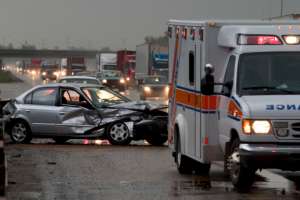By Bavukile Magagula and Maricia Smith
The question of law that was raised in the matter of Mashongwa v PRASA [2015] ZACC 36 was whether the transport utility, the Passenger Railway Association of South Africa (PRASA), should, delictually, be held liable for damages that flow from a breach of its public law duty to provide safety and security measures for its commuters. This case is concerned with physical harm suffered by a passenger as a result of being robbed, physically assaulted and thrown off a moving training.
The court emphasised that public institutions, such as PRASA, are regarded as having a legal duty to protect their passengers from experiencing any physical harm while utilizing their transport services.
JURISDICTION
The court needed to consider the issue of jurisdiction, on the first glance the determination of the issues in the matters did not seem to turn on any specific constitutional issue. The case appeared to be purely factual in nature.[1] However the court highlighted that the case raises a question of public interest and as such the Court recognised the importance of granting leave to appeal in the matter. The court[2] further emphasised that Mr Mashongwa’s claim relied heavily on section 7(2), which imposes certain obligations on organs of state, such as PRASA, to respect and promote the rights in the Bill of Rights,[3] and section 12(1)(c) of the Constitution which protects the right to freedom and security of the person to be free from all forms of violence from private or public sources.[4] Additionally, the enquiry into wrongfulness is focused on whether the legal convictions of the community, regard the conduct as acceptable.[5]
WRONGFULNESS AND HARM
This case is concerned with physical harm suffered by a passenger as a result of being robbed, attacked and thrown off a moving training. As a result of the conduct of the unarmed men, the Plaintiff sustained serious injuries to his left leg, which was subsequently amputated.[6] There is a presumption that when a passenger enters a train, the transport provider is aware of the dangers to which commuters may be exposed and would take the necessary steps to avert the reasonably foreseeable harm.[7] Chief Justice Mogoeng (Mogoeng) goes on to state that commuters are essentially trapped on the train in transit, when an act of violence occurs. PRASA therefor has a duty to ‘ensure that reasonable measures are in place to provide for the safety of rail commuters.’[8] The court further emphasised that State organs and institutions should not escape accountability for a careless attitude particularly towards public interests and safety.[9] Therefore an exception can be made to the general rule that a breach of a public law duty won’t result in a delictual claim for damages.[10] Without this exception, public officials would adopt an ignorant attitude towards their public duty knowing that there would be no repercussions for their actions.
The court’s wrongfulness enquiry highlighted that negative conduct such as the failure to put safety and security measures in place is, in principle, similar to positive conduct causing harm.[11] This was extended to PRASA which had a legal duty to protect commuters from suffering physical harm. This duty is based not only on contract law but most importantly on public policy. In defining an omission, the Court stated that an omission would be wrongful where it ‘“evokes moral indignation and the legal convictions of the community require that the omission be regarded as wrongful.”’[12]
Ensuring the safety of passengers should be central to PRASA’s objectives.[13] The Court emphasised that the norms and principles of the Constitution demand that a breach of a public duty, even by omission, should attract delictual liability where there is no alternative non-judicial remedy.[14] However, a finding of wrongfulness is not as a result of a breach of a public duty rather a factor contributing to the finding.[15] Therefore in consideration of these principles and ensuring that victims have effective relief, breach of a public law duty must be transposed into a private law breach in delict.[16]
NEGLIGENCE
Although PRASA has a duty to put safety measures in place, the court stated that it is not required to have measures in place which will guarantee that no crime or harm to commuters will occur.[17] Additional resources would not have been required to ensure that the doors remained closed because the harm was reasonably foreseeable. PRASA had a legal duty to ensure that doors remained closed while trains were in motion. This duty, according to the Court, further did not exist to stop criminals from throwing passengers off a train. As it is highly likely that the Plaintiff wouldn’t have sustained his injuries had the train doors were closed, the court concluded that PRASA acted negligently in failing to ensure basic safety measures were in place.[18]
The foreseeable harm was therefore not that criminals would throw the Plaintiff out of the train but rather the possibility that the Plaintiff could have slipped or been accidentally or deliberately thrown out of the train while the doors were open.[19] The fact that the train doors were open made it easier for the criminal act to occur. Therefore, it is reasonable to impose liability for damages on PRASA.[20]
CAUSATION
Factual causation was established as the Court found it unlikely that the criminals would have been able to force the doors open and throw out the Plaintiff, as fast as they did, without the benefit of having the train doors already open.[21]
The Court in finding that the harmful conduct was connected to the harm, stated that the failure to keep the doors closed whilst the train was in transit is conduct that should attract liability.[22] The Court emphasised that preventative steps could have been implemented with no additional costs. The court found it ‘inexcusable’ that the Plaintiff suffered harm as a result of PRASA’s failure to do the bare minimum.[23] The Court emphasised again that PRASA’s self-imposed duty to ensure the safety of commuters and its subsequent failure to keep the doors closed whilst the train was in transit, made it fair, reasonable and just to impose liability onto PRASA.[24]
RATIO
PRASA has a duty to ensure the safety of all commuters and was therefore held liable for the damages suffered by Mr Mashongwa.
[1] Mashongwa v PRASA [2015] ZACC 36 para 12
[2] Ibid para 13
[3] The Constitution of the Republic of South Africa, 1996 s 7(2).
[4] Ibid s 12(1)(c).
[5] Supra note 1 para 13.
[6] Ibid para 6.
[7] Ibid at para 16.
[8] Ibid.
[9] Ibid at para 25.
[10] Ibid.
[11] Ibid para 19.
[12] Ibid at para 23.
[13] Ibid at para 26.
[14] Ibid.
[15] Ibid at para 28.
[16] Ibid at para 27.
[17] Ibid at para 34.
[18] Ibid at para 52.
[19] Ibid at para 60.
[20] Ibid at para 52.
[21] Ibid at para 67.
[22] Ibid at para 69.
[23] Ibid.
[24] Ibid.



